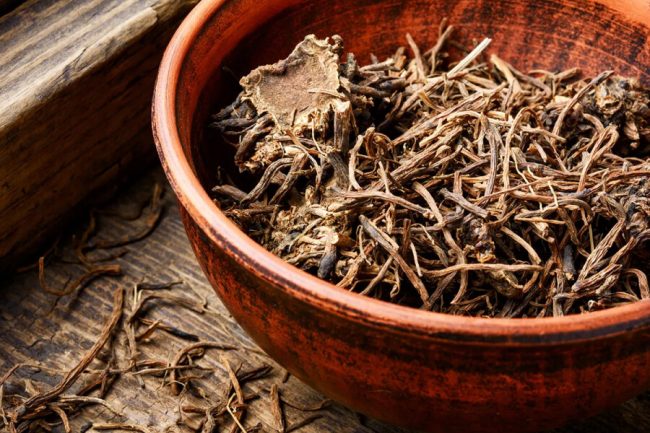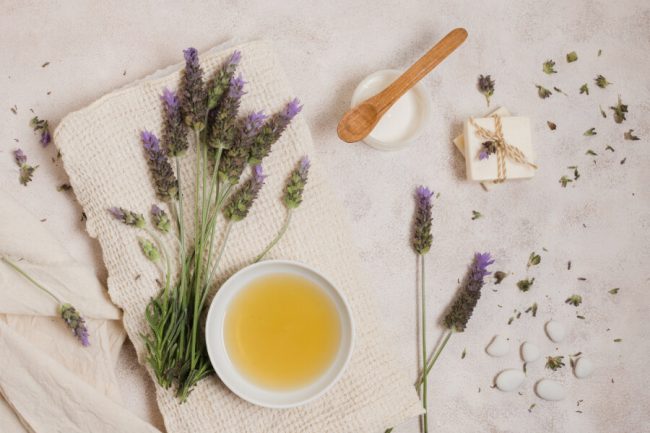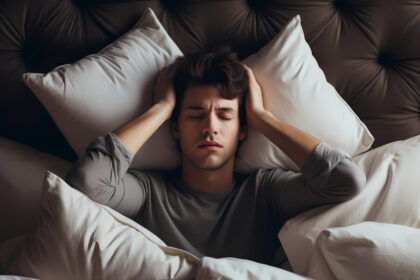Struggling to get a good night’s sleep? You’re not alone. Sleep issues happen to me, you and everyone, and while there are numerous remedies available, one natural option that has stood the test of time is Valerian root.
Known for its calming properties, Valerian root has been used for centuries to promote relaxation and improve sleep quality.
If you’re curious about how to use this herbal sleep aid effectively, you’re in the right place. This blog will provide you with ten practical tips and recommendations for using Valerian to enhance your sleep.
Understanding Valerian Root as a Natural Sleep Aid
Valerian root, taken from the Valeriana officinalis plant, has a long history of use as a remedy if you suffer from insomnia and anxiety.
Native to Europe and parts of Asia, this herb is now widely available and commonly used in various forms, including teas, tinctures, capsules, and extracts.
The root of the Valerian plant contains active compounds that interact with the central nervous system, promoting a sense of calm and helping to ease the transition into sleep.
Mechanism of Action and Benefits of Valerian as a Sleep Aid
Valerian root works by increasing the levels of gamma-aminobutyric acid (GABA) in the brain. GABA is a neurotransmitter that helps regulate nerve impulses and has a calming effect on the nervous system.
By enhancing GABA activity, Valerian root can help reduce the time it takes to fall asleep, improve sleep quality, and decrease feelings of anxiety and stress.
Additionally, it is generally well-tolerated and has fewer side effects compared to prescription sleep medications.
10 Tips for Using Valerian Root to Improve Sleep
Valerian root is available in various forms, including capsules, tablets, teas, tinctures, and extracts. Each form has its own benefits, so it’s important to choose the one that best fits your lifestyle and preferences.
Capsules and tablets offer a convenient and consistent dosage, while teas and tinctures allow for a more personalized approach. Experiment with different forms to find the one that works best for you.
Determining the Optimal Dosage for Effective Results
Finding the right dosage of Valerian root is crucial for achieving the desired effects. The recommended dosage can vary depending on the form you choose and your individual needs.
Generally, for capsules or tablets, a dose of 300-600 mg taken 30 minutes to two hours before bedtime is effective. For teas and tinctures, follow the instructions on the packaging. It’s a good idea to start with a lower dose and gradually increase it until you find the optimal amount that works for you.
Establishing a Consistent Sleep Routine
Consistency is key when it comes to improving sleep quality. Establishing a regular sleep routine can help regulate your body’s internal clock and make it easier to fall asleep and wake up at the same time each day.
Try to go to bed and wake up at the same time, even on weekends. Incorporating Valerian root into your nightly routine can further support this consistency and enhance its effectiveness.
Creating a Relaxing Bedtime Ritual
Creating a relaxing bedtime ritual can signal to your body that it’s time to wind down and prepare for sleep.
Incorporate calming activities such as reading a book, taking a warm bath, or practicing gentle yoga or meditation.
Consuming Valerian root tea or taking a capsule as part of your bedtime ritual can help enhance the calming effects and make it easier to transition into sleep.
Managing Stress and Anxiety Levels
Stress and anxiety are common culprits of sleep disturbances. Managing these feelings can significantly improve your sleep quality.
In addition to using Valerian root, incorporate stress-reducing activities into your daily routine, such as regular exercise, mindfulness practices, and spending time in nature.
These activities can complement the calming effects of Valerian root and help you achieve a more restful sleep.
Avoiding Stimulants Before Bedtime
Stimulants such as caffeine and nicotine can interfere with your ability to fall asleep and stay asleep.
To maximize the benefits of Valerian root, avoid consuming these substances in the hours leading up to bedtime.
Instead, opt for calming beverages like Valerian root tea or other herbal teas known for their relaxing properties, such as chamomile or lemon balm.
Creating a Comfortable Sleep Environment
Your sleep environment plays a crucial role in the quality of your sleep. Ensure your bedroom is conducive to rest by keeping it cool, dark, and quiet.
Invest in a comfortable mattress and pillows, and consider using blackout curtains or a white noise machine if external light or noise is an issue.
A comfortable and inviting sleep environment can enhance the effects of Valerian root and help you achieve a more restful night.
Trying Different Methods of Consuming Valerian Root
If you’re new to Valerian root, it’s worth experimenting with different methods of consumption to find what works best for you.
Some people find that drinking Valerian root tea is a soothing way to wind down before bed, while others prefer the convenience of capsules or tinctures.
Pay attention to how your body responds to each method and choose the one that provides the most effective and enjoyable experience.
Combining Valerian Root with Other Natural Sleep Aids
Valerian root can be even more effective when combined with other natural sleep aids.
Herbal supplements such as melatonin, magnesium, or passionflower can complement the calming effects of Valerian root and enhance overall sleep quality.
However, it’s important to consult with a healthcare professional before combining supplements to ensure safety and avoid potential interactions.
Seeking Professional Advice if Necessary
If you’re struggling with persistent sleep issues despite using Valerian root and other natural remedies, it may be time to seek professional advice.
A healthcare provider or a sleep specialist can help identify underlying causes of your sleep problems and recommend appropriate treatments.
They can also provide guidance on the safe and effective use of Valerian root and other sleep aids.
Valerian Root: Potential Interactions and Side Effects
While Valerian root is generally safe for most people, it’s important to be aware of potential interactions with other medications or supplements.
Valerian root can enhance the effects of sedatives, antidepressants, and alcohol, leading to increased drowsiness or other side effects.
If you’re taking any prescription medications or other supplements, consult with your healthcare provider before using Valerian root to avoid potential interactions.
Identifying Common Side Effects of Valerian Root Usage
Valerian root is well-tolerated by most people, but some may experience mild side effects, especially when starting use or increasing the dosage. Common side effects include headaches, dizziness, gastrointestinal discomfort, or feelings of grogginess. If you experience any severe or persistent side effects, discontinue use and consult with a healthcare professional.
Valerian Root: Safe Usage and Precautions
Certain individuals should exercise caution when using Valerian root.
Pregnant or breastfeeding women, children, and individuals with liver conditions or allergies to Valerian should avoid using this supplement without medical advice.
Additionally, it’s important to use Valerian root as directed and avoid excessive or long-term use, as this can lead to dependence or tolerance.
Determining Safety Measures and Guidelines for Valerian Root Consumption
To ensure safe usage, follow these guidelines when using Valerian root:
- Start with a low dose: Begin with the lowest recommended dose and gradually increase as needed.
- Monitor your response: Pay attention to how your body responds to Valerian root and adjust the dosage or method of consumption if necessary.
- Avoid prolonged use: Use Valerian root for short-term periods or intermittently to avoid potential dependence or tolerance.
- Consult with a healthcare professional: If you have any underlying health conditions or are taking other medications, seek medical advice before using Valerian root.
Alternative Sleep Aids: Exploring Options Beyond Valerian
While Valerian root is a popular choice for improving sleep, there are several other natural sleep aids worth exploring. These include melatonin, chamomile, lavender, magnesium, and passionflower. Each of these remedies has unique properties that can promote relaxation and enhance sleep quality.
Comparative Analysis of Different Sleep Aid Options
When choosing a natural sleep aid, it’s important to consider your individual needs and preferences. Here’s a brief comparison of some popular options:
Melatonin: A hormone that regulates sleep-wake cycles. Effective for adjusting to new time zones or managing sleep disorders.
Chamomile: A calming herb often consumed as tea. Helps reduce anxiety and promote relaxation.
Lavender: An aromatic herb known for its soothing scent. Can be used in aromatherapy or as an essential oil to promote sleep.
Magnesium: A mineral that supports muscle relaxation and overall calmness. Available in supplement form or through dietary sources.
Passionflower: An herb that helps reduce anxiety and improve sleep quality. Often used in combination with other herbs.
Conclusion
Valerian root is a valuable natural remedy for those seeking to improve their sleep quality. By understanding its benefits, choosing the right form and dosage, and incorporating it into a consistent sleep routine, you can enhance your chances of achieving restful sleep.
Remember to manage stress, avoid stimulants, create a comfortable sleep environment, and seek professional advice if needed. Additionally, exploring other natural sleep aids can provide you with a well-rounded approach to better sleep.
FAQs
What is the best way to take Valerian root for sleep?
The best way to take Valerian root for sleep depends on your personal preferences. Common methods include capsules, tablets, teas, and tinctures. Start with a low dose and adjust as needed to find the most effective form for you.
Which stages of sleep does Valerian affect?
Valerian root primarily helps you fall asleep faster and may improve overall sleep quality by promoting deeper, more restful sleep. It may have a calming effect on the nervous system, making it easier to transition into the various stages of sleep.
What is better than Valerian for sleep?
The effectiveness of sleep aids varies from person to person. Some may find melatonin, chamomile, lavender, magnesium, or passionflower to be more effective than Valerian root. It’s important to experiment with different options and consult with a healthcare professional to find the best solution for your sleep needs.







